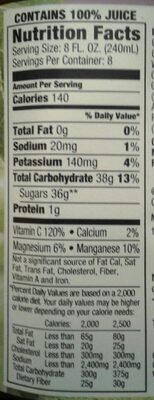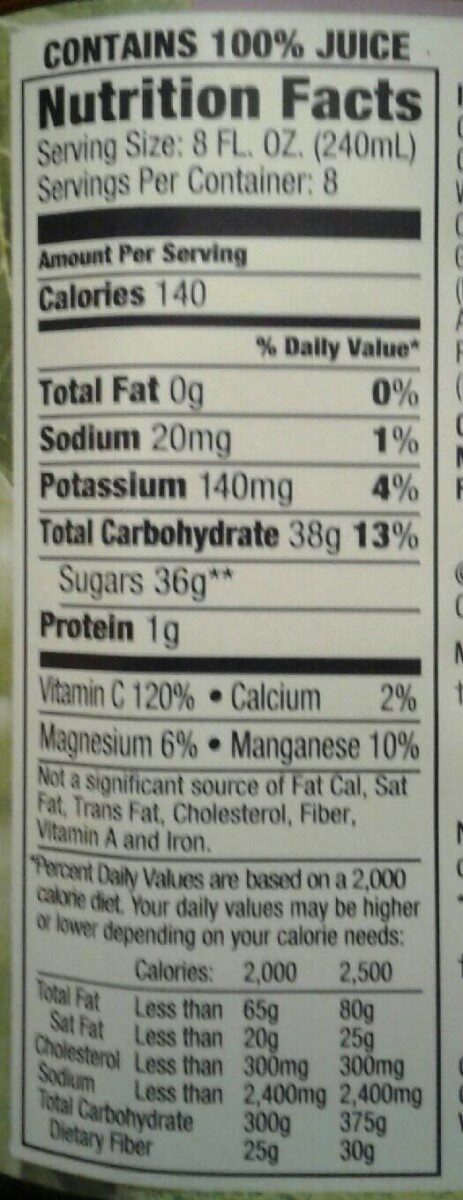White grape juice - Crisp - 1.89 L
This product page is not complete. You can help to complete it by editing it and adding more data from the photos we have, or by taking more photos using the app for Android or iPhone/iPad. Thank you!
×
Barcode: 0041800227006 (EAN / EAN-13) 041800227006 (UPC / UPC-A)
Quantity: 1.89 L
Packaging: es:Botella de plastico
Brands: Crisp, Welch Foods Inc
Brand owner: Welch Foods Inc
Categories: Plant-based foods and beverages, Beverages, Plant-based beverages, Fruit-based beverages, Juices and nectars, Fruit juices, Grape juices
Labels, certifications, awards: No gluten, Verified
Origin of ingredients: Estados Unidos
Manufacturing or processing places: Ciudad de México
Countries where sold: Mexico, United States
Matching with your preferences
Environment
Carbon footprint
Packaging
Transportation
Report a problem
Data sources
Product added on by usda-ndb-import
Last edit of product page on by roboto-app.
Product page also edited by aleene, inf, kiliweb, openfoodfactsmx3, openfoodfactsmx4, org-database-usda, packbot, wolfgang8741, yuka.YTdJaVNKOGVuS0l3bXNjRHhVemU1SXR1eXA2c2NGcVBDY05LSVE9PQ, yuka.sY2b0xO6T85zoF3NwEKvlhQYXID0oz36aiT4o0mk6v2vFaXNSotZ77jQEao.








